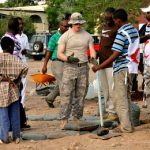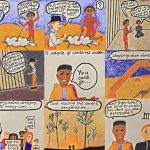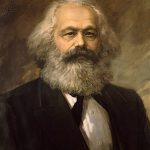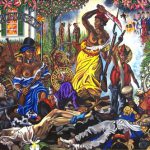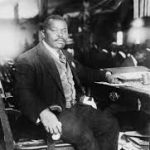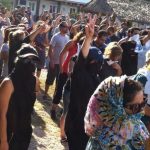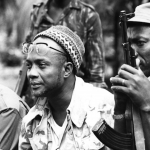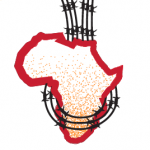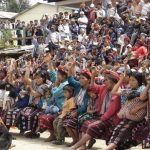by Dimitra Dermitzaki
This paper aims at addressing the appropriateness of young “Westerners” when participating in projects of volunteer tourism, inter alia supported by governmental and state funds, while also discussing the complexity of Germany’s refusal of the formal recognition of its committed genocide and reparation payments.
Author: thelionandthehunter
Comic Strip “WHO KNOWS?”
by Tania Plunkett
While studying the subject, “The Invention of Africa,” which was based on V.Y. Mudimbe’s book of the same name, I was struck by the parallels I see in my own country, Australia, regarding the historical and present-day perceptions of Aboriginal and Torres Strait Islanders (ATSI). During my school years through the 1980s and 90s, schools taught Australian colonial history as “Australian history” and painted colonists largely as explorers and heroes. Indigenous histories were mostly excluded or simplified, and ATSI perspectives almost never included.
The Accumulation of Africa
by Mikael Lyngaas
In this essay I’ll examine capitalist accumulation and imperialism within an African colonial and post-colonial context.
Postcolonial Poetry Project: The mirage of national identity and the possible otherness
by Mauricio Jiménez Hernández and Mario Alberto Naranjo Ricoy
“This project has allowed us to politicize our personal inclination for poetry and, watered in the tradition of postcolonial poetry that we have been discovering in our research, to articulate a discourse and a shared approach in order to nourish and reinvent that tradition of rebellious words that accompany the struggles of humanity and peoples for a fairer world…”
Justice for Marcus Garvey
by Byungkun Kim
What I wish to do here is to revisit my own definition of Marcus Garvey’s exclusion and do justice to my own interaction with Garvey’s writing.
Neo-colonialism and Australian off-shore detention
by Jack Garton
The Australian government undertakes deliberate steps to dehumanise asylum seekers who come to Australia through a network of illegal concentration camps. The Australian federal government has consistently and knowingly disregarded legal norms and violated international law. Despite claims to the contrary, Australia wields profound and undue influence over Papua New Guinea and the Republic of Nauru, where these camps are located. Finally, the efforts of the Australian government in the years 2013-6 at ‘othering’ asylum seekers is an insidious form of dehumanisation. These policies, I shall argue, are not an aberration in European-Australian history, but rather a culmination of a profound and latent racism upon which the modern Australian state was founded upon.
Cabral speaks with Hegel – A Radio Podcast
by Beth Castaneda
Amílcar Cabral and Georg Hegel discuss various topics. Cabral taunts Hegel with his theory of master and bondsman and Hegel questions Cabral’s celebration of particularity. The debate follows this short introductory paper and it is an attempt to see how these men respond to some of the more sensitive parts of their theories.
A magazine of critical perspectives on the G20 summit. Or: The Summit of Colonialism?
by Annika Basten, Dshamilja Roshani, Emmanuel Dahan, Vanessa Lee, Yasmine Bakr
Concerning our aim to break out of academic contexts, it made sense for us to use the form of a magazine as it it allows various media approaches and makes space for conversation with a diverse audience due to its accessible nature. It also provides the possibility to generate, share and discuss information in a digital and physical form. We decided to use the G20 Summit as a focal point as it reflects current political, economic and social processes. We found that public discourse about the G20 often failed to provide firstly general information about the summit itself and secondly explanations for the motivations behind the protests against it, including its whole diversity and controversies. Therefore, we wanted to make this knowledge accessible by summarizing basic information about the G20 before proceeding with our own criticism about the G20 summit. We hope to create alternative narratives – not only by opposing the labelling of G20 protests as useless, destructive and purely violent actions, but also by presenting a different view on the “partnership with Africa” and all its related topics.
Bleeding Latin America the “Nice” Way: Canadian Mining in Latin America
by L. M. K.
In fact, companies are protected by trade agreements which allow them to sue local governments when the latter take action to protect local communities. For instance, “Canada has played an active role in changing regulations governing Colombia’s energy sector in ways that favour Canadian companies,” with neoliberal trade deals which protect investors at the expense of the populations. The local governments are accused of lacking surveillance of the situations where Canadian mining companies operate, without care for the local water sources and populations’ displacements.
Photojournalism and Objectivity – The World Press Photo Contest (2017)
by Catriona Miller and Adèle Brailly
This project is a critique of the World Press Photo Contest from a postcolonial perspective. We state that photojournalism is part of a wider power discourse: colonial tropes are reproduced by depicting a poor and miserable other, in opposition to developed Western people. The very aim of the World Press Photo Foundation is to show what is happening worldwide, in the name of freedom press, freedom of expression, and freedom of speech. But what about the voice of the photographed people? Is it actually necessary to show violent images? Does it raise social awareness? The questions of empathy and dignity of the victims seem to be relevant in a context of continuous information.
